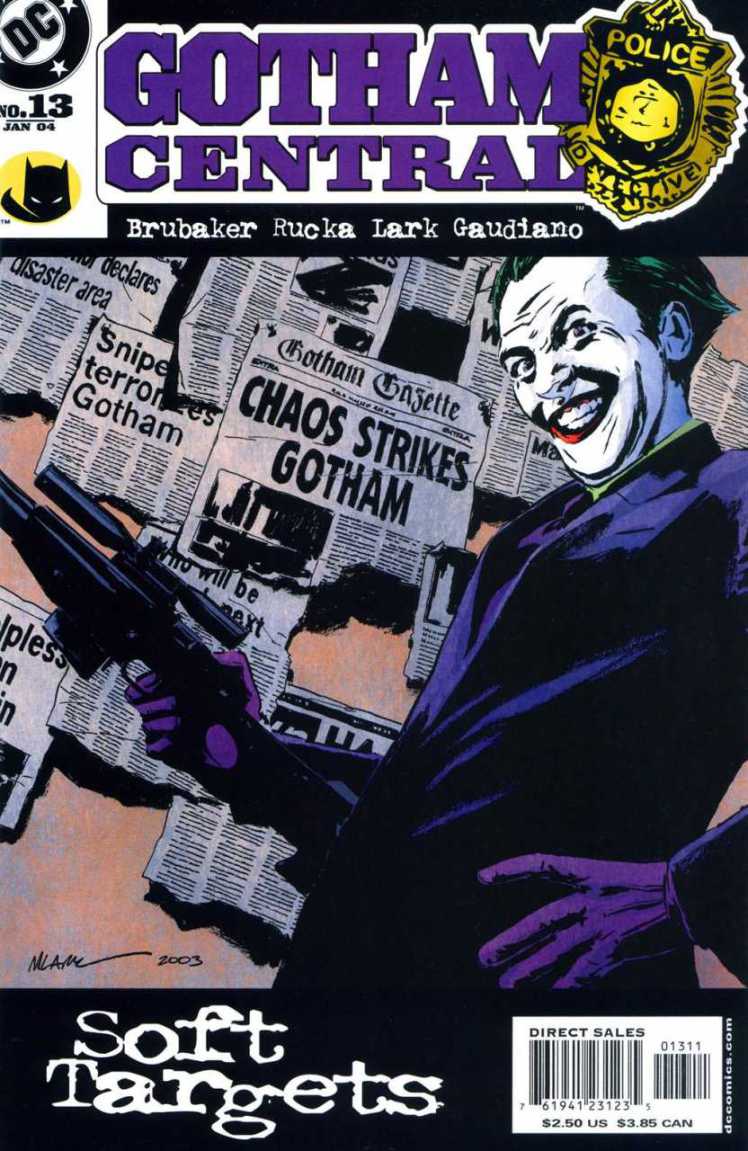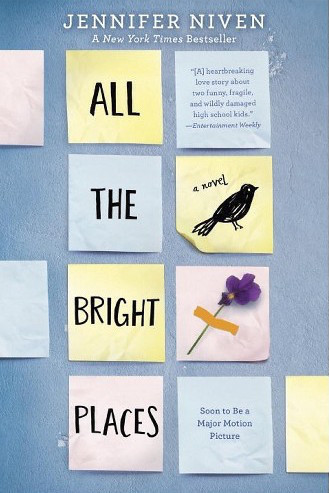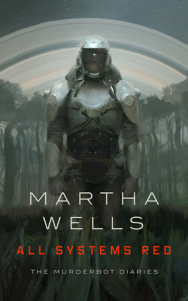I’ve been a complete lunatic about grammar since my Language Arts teacher introduced my classful of twitchy twelve year olds Daily Grammar Practice in the sixth grade. Have you heard of this? Did you do it in school? I learned in college that far fewer of my peers had every done anything remotely like DGP which broke my heart (and also explained a lot of common mistakes in essays I tutored). Okay, well I won’t give you a full on diatribe about this, but essentially it was sentence diagraming — identifying parts of speech, identifying parts of sentences, correcting spelling and punctuation, etc. I loved it a child. This is kind of what it looked like:
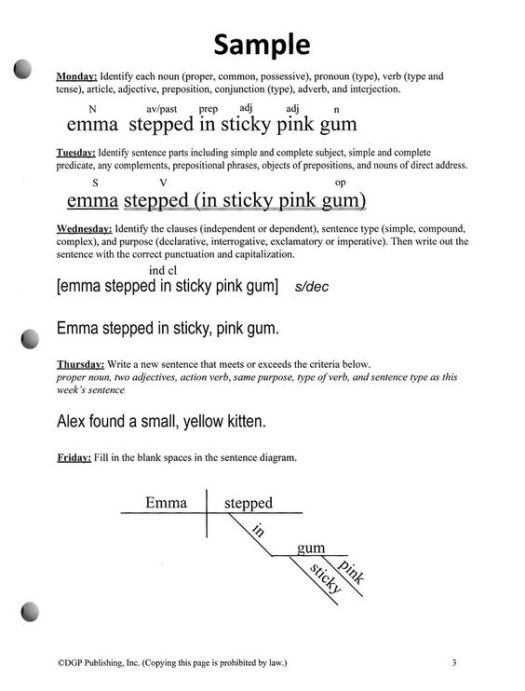 Each day of the week we’d have a specific task. It was used mainly as a warm up.
Each day of the week we’d have a specific task. It was used mainly as a warm up.
So the point is, this daily practice which I grew to love made me absolutely insufferable as a writer. I obsessed over parallelism and sentence complexity to the point where I would absently diagram sentences in my head for fun. When I read anything — from a billboard to a book — my brain would activate this DGP lobe like I was Spiderman but way less cool, so that every sentence I read I would try to improve with the rules of grammar. I was absolutely mental about it. This served me well when I tutored papers from students who didn’t speak English natively, because they wanted their papers to be grammatically correct and my mind would automatically click on red pen mode. It was troublesome other times, like when I was supposed to be tutoring for content or ideas, because I’d want to line edit when I needed to be focusing on making sure the author was getting their point across.
This obsessive compulsive behavior led me to become interested in writing craft books. I loved books and I loved writing well, so it seemed natural that I’d want to gobble up books that would satisfy both of those needs. I love grammar and writing well, and finding books that could make my writing even sharper was great. So, today, for the inaugural Genre Thursday, I’m going to talk about my favorite writing books! We’ll start with the books I feel are essential for anyone writing anything, and then I’ll break it down into subsets.
For Any WriterThe Elements of Style by William Strunk Jr. and E. B. White is absolutely essential for every human being who communicates through writing in English to read. Every person should receive a copy upon entering high school — it’s THAT big of a deal. If you didn’t learn much grammar in school, then this is your crash course. You won’t be doing DGP sentence diagrams (sadly) but you will be getting a quick and clean guide to all the grammar rules that will keep your writing sharp, efficient, and effective. It’s quick and easy to read and you can probably have a good grasp on all the little errors you make in your writing in an afternoon, and you can keep it on hand to reference when you aren’t quite sure of a rule or usage. Again, this is absolutely essential to all writers, no matter what you write!

I will always, always, always defer to the magnificent William Zinsser for advice about writing non-fiction. HIs books are simply magnificent. Not only do they teach you a lot about the ways to write and how to achieve effective writing, but they’re also just joyful to read. Filled with his own experience, the experience with others, and genuine personality, this feels less like reading a guide to non-fiction than it feels like a favorite professor talking with you over your work. He’s that good.
I heartily recommend his Writing to Learn book for those writing in academia. He wrote the novel while doing some research into how to teach writing, and in the end, was able to encapsulate an oft-forgot truth — we don’t always write to teach, but do always write to learn. I myself utilize this every time I sit down to pen a blog post. In the practice of putting down my words and ideas, I can see what it is that I really liked or didn’t like, make connections and identify patterns, and find ideas that I didn’t know I had yet — and all of this serves to help me learn about the book and myself. I read this novel after I finished college, and I wish so desperately that I had read it before or while I was in college. For three years, I was beating myself whenever I couldn’t understand an academic journal article or book, berating myself for being too dumb to understand what the author was saying. But, Zissner argues, it wasn’t me after all. Acedemia is overcrowded with people trying to make their work complicated and difficult, as if it would be shameful for an undergraduate or lay-person to understand this complex idea about chemistry or Toni Morrison, as if they constantly had to be flexing their big brain and complicated theories to be worth anything to their institutions. Zissner argues the opposite — if a normal person can’t read your ideas, you haven’t said them well enough. This book is all about making other people, especially those outside of your field or department, able to understand your writing and, even, (imagine!) be interested in reading it. How revolutionary!
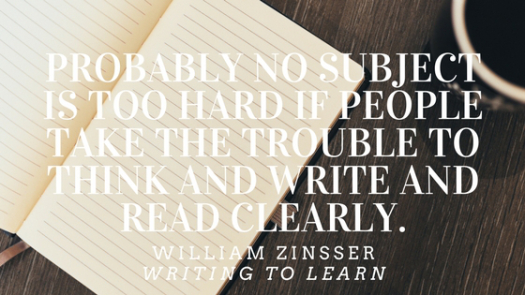
My second recommendation from Zinsser is On Writing Well, his original catch-all guide to effective writing. He talks about nearly every form of writing nonfiction, from articles to memoirs to reports. He also spends a fair amount of time discussing the usage and style aspects of grammar that are absolutely essential for anyone writing anything. I completely recommend his work!
For the Fiction WriterFor the many years of my life that I was dedicated to writing fiction, or at least to trying, I collected a set of fiction writing books and guides, because I suffered so strongly from imposter syndrome that I genuinely believed that there were specific rules for writing books and if I didn’t follow them, everyone who read my book would know I was a phony and I would be black balled from fiction forever. It wasn’t until I had given up writing fiction and completed college that I realized that, in fact, there were no rules. Not really. I still follow discussions about writing from authors on social media and occasionally skim a chapter or two of a manual just for ideas, but for the most part, I’ve given up buying fiction writing guides.
There is only one rule in writing fiction that I’ve seen unanimously across the board: read. Read. Read. Read. Read until your eyes fall out. Then put them back in and read some more. You learn to write by reading what you want to write (and even more so by reading what you don’t want to write), by seeing the craft in action, by learning new words, by learning your style from what you like and don’t like in other people’s books, and by criticizing what you like and don’t so you really can figure out what works for you. Because that’s the only person you have to prove your worth to: you.
However, I will give a recommendation for this category because I told you I would and because I actually have a suggestion. The first writing book I was ever given was called Writing Magic by Gail Carson Levine. I read her work a lot as a child, and when I began writing, someone who noticed gave me her writing book. It’s a tiny little thing, mainly written for younger writers but still interesting and useful for older writers as well. It’s charming and fun, and most importantly it gives you a good idea of all the things a writer’s life entails. So check out this book, then never buy a writing manual again! You’ve got some reading to do!
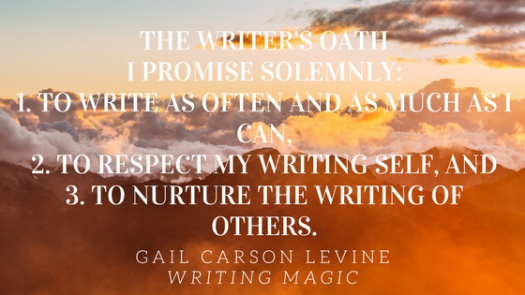
Do you read writing guides? Why or why not?
Share this:
